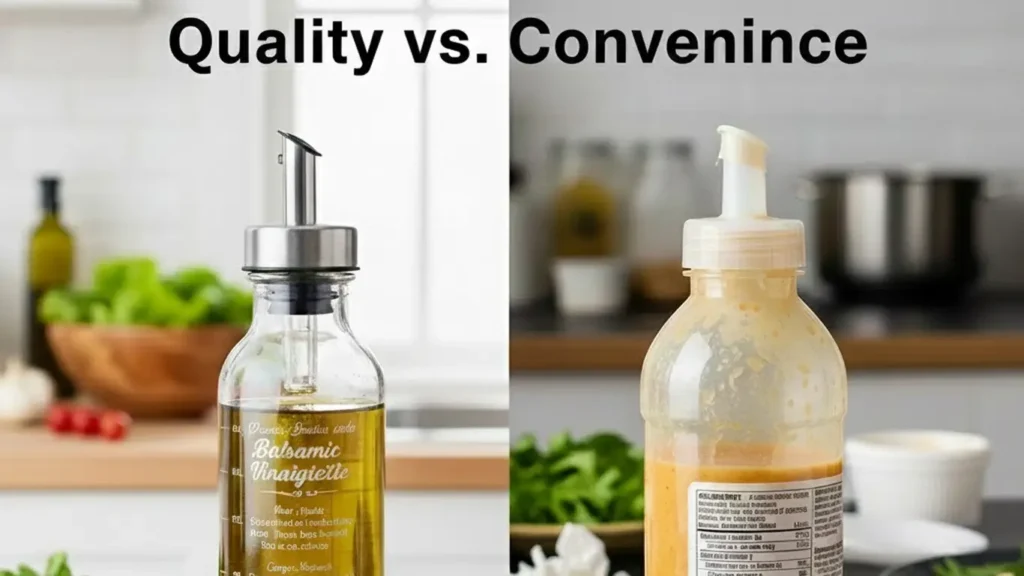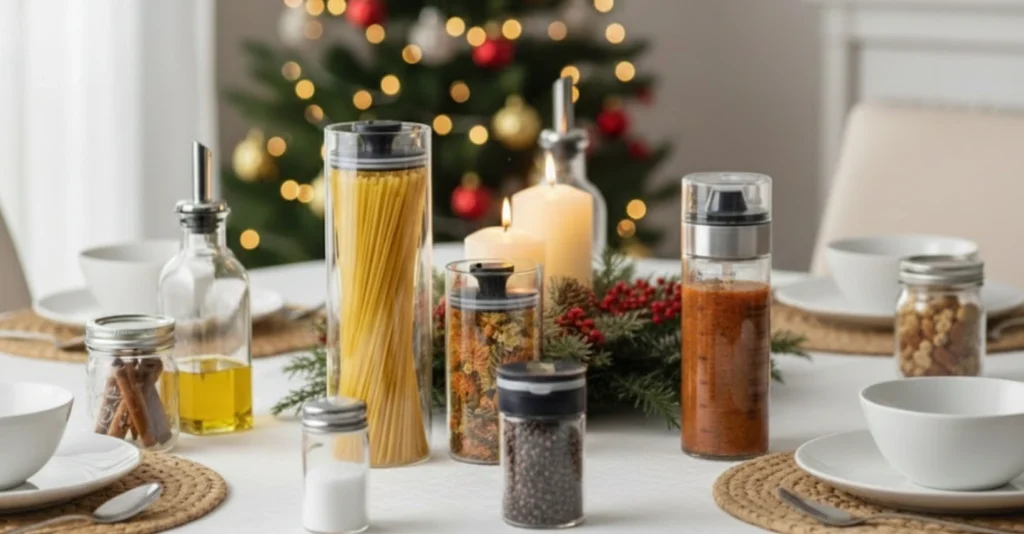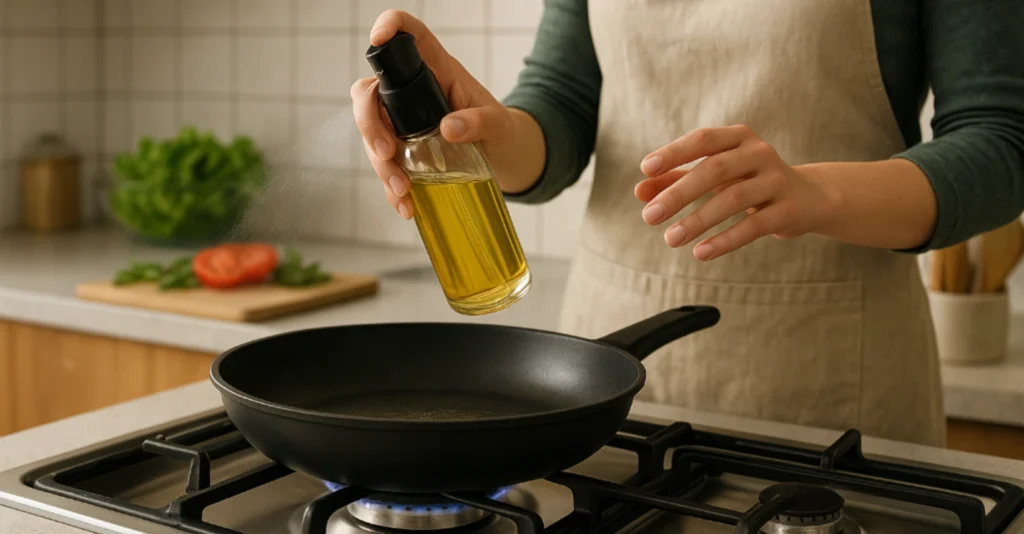Olive oil has long been celebrated as both a culinary staple and a nutritional powerhouse. Its reputation for enhancing flavor and supporting health has made it central to diets worldwide, particularly the Mediterranean diet. Yet, many consumers overlook a critical question when buying olive oil: Does olive oil need to be in a dark bottle? The short answer is yes—but to fully understand why, we must first explore the unique composition of olive oil and the factors that influence its quality.
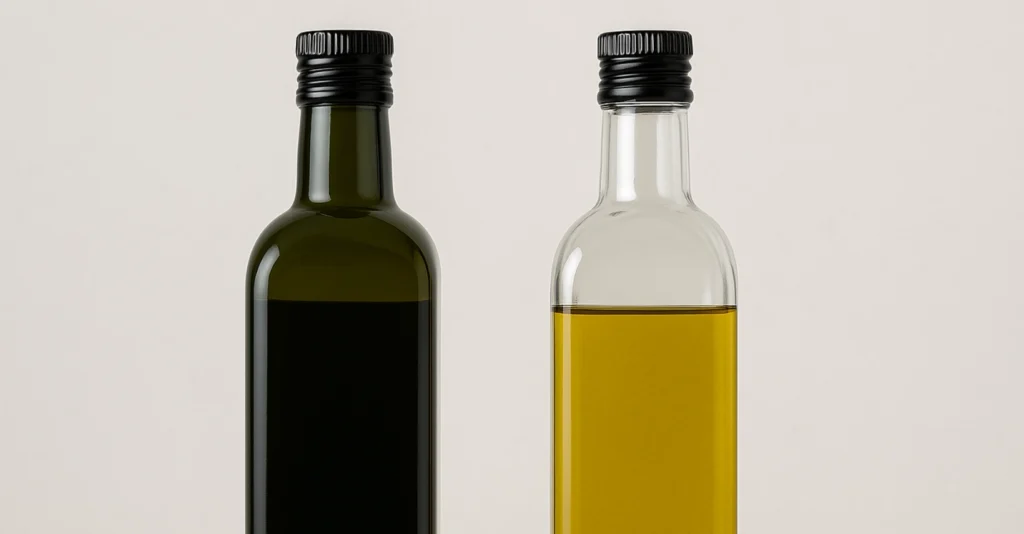
Understanding Olive Oil’s Features: Composition and Quality Factors
Unlike most cooking oils, olive oil is not heavily refined. Instead, it is mechanically extracted, which means it retains delicate bioactive compounds that define its taste, aroma, and nutritional profile. However, those same compounds are also highly sensitive to external factors such as light, heat, and oxygen. This makes packaging and storage just as important as production methods when it comes to preserving quality.
The Composition of Olive Oil
Olive oil is a complex liquid made up of several key components:
- Monounsaturated fatty acids (oleic acid): The dominant fat in olive oil, linked to heart health and cholesterol management.
- Polyphenols and antioxidants: Compounds that protect cells from oxidative stress while giving olive oil its peppery, sometimes bitter notes.
- Vitamin E: A natural antioxidant that contributes to both health benefits and stability.
- Aromatic compounds: Responsible for olive oil’s fresh, fruity aroma and flavor.
These natural elements are fragile. Without proper protection, they degrade quickly, leading to loss of flavor, reduced health benefits, and even rancidity. EasyLife has developed olive oil bottles that are designed to keep you fresh and effective.
Factors That Affect Olive Oil Quality
Several factors determine the overall quality of olive oil:
- Olive Cultivar: Different varieties produce different flavor profiles, from grassy and peppery to mild and buttery.
- Soil and Climate: Terroir plays a role in taste, much like wine.
- Harvest Timing: Early harvest oils are higher in antioxidants but more robust in taste; late harvest oils are smoother but less stable.
- Extraction Method: Cold-pressing and careful handling preserve antioxidants, while refined methods strip them away.
- Storage Conditions: Even the best olive oil loses quality when exposed to light, heat, or oxygen.
Among these, light exposure is often underestimated—yet it can ruin olive oil just as quickly as poor harvesting practices. That’s why we recommend using dark glass oil bottles to store your high-quality olive oil.
The Science of Light Degradation
Why does olive oil deteriorate when exposed to light? The answer lies in chemistry. When UV rays penetrate a clear bottle, they break down chlorophyll and polyphenols in the oil. This process—called photooxidation—accelerates rancidity, leading to unpleasant flavors and a shorter shelf life.
Studies show that olive oil stored in clear bottles degrades significantly faster than oil stored in dark or opaque containers. In fact, in just a few weeks of light exposure, olive oil can lose much of its antioxidant activity.
This is the key reason why packaging isn’t just about aesthetics—it’s about preserving the very
Why Olive Oil Should Be Stored in Dark Bottles
So, does olive oil need to be in a dark bottle? Absolutely. Dark bottles act as shields, blocking harmful UV rays and reducing light-induced oxidation. By storing oil in dark glass or tins, producers extend shelf life, maintain flavor integrity, and ensure that consumers get the full nutritional benefits.
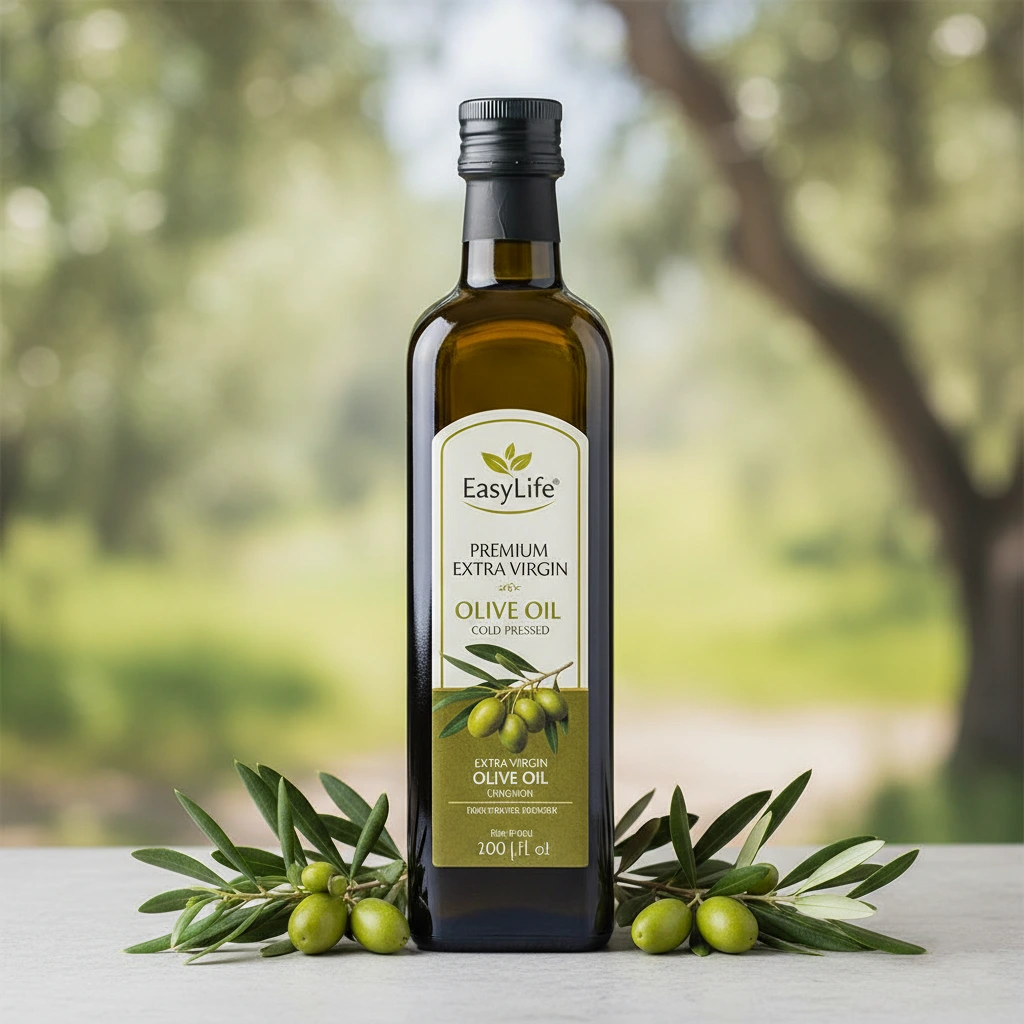
This is why high-quality extra virgin olive oil is rarely packaged in clear bottles. Reputable brands understand that packaging is a critical part of quality assurance.
Types of Dark Glass Bottles
Not all dark bottles are created equal. Here are the most common options:
- Green Glass Bottles: Widely used, offering moderate protection while maintaining an appealing look.
- Amber or Brown Glass: Provides superior light protection compared to green glass.
- Blue Glass: Stylish and eye-catching, but less effective than amber.
The darker the glass, the better the protection. For producers, it’s a balance between effectiveness, branding, and consumer appeal.
The Great Container Debate: Opaque vs. Clear
Opaque Containers (Dark Glass or Metal Tins):
- Pros: Maximum protection, longer shelf life, preserved antioxidants.
- Cons: Less visibility for consumers, slightly higher cost.
Clear Containers:
- Pros: Attractive for marketing (consumers can see the oil).
- Cons: Rapid degradation, lower nutritional retention, risk of rancidity.
Some brands use secondary packaging (like cardboard boxes) to mitigate the risks of clear bottles, but this is not as effective as true dark or opaque materials.
Importance of Packaging in Olive Oil Quality
Packaging is the final step in protecting olive oil from production to plate. Even if the olives are harvested at peak ripeness and pressed with care, poor packaging can undo all that effort.
Suitable Packaging Materials Should:
- Protect against light, air, and heat.
- Be food-safe and non-reactive.
- Support sustainability (e.g., recyclable glass or metal tins).
When these standards are met, olive oil can maintain its freshness and health benefits for months.
Why Not Use Plastic?
Plastic bottles allow oxygen to penetrate, accelerating spoilage. Over time, chemicals from the plastic can also leach into the oil, altering its flavor and safety. Additionally, plastic is less sustainable than glass or tin. For these reasons, plastic packaging is not recommended for high-quality olive oil.
EasyLife: High-Quality Packaging for Olive Oil
At EasyLife, we understand that packaging is more than a container—it’s a guardian of quality and a reflection of your brand. Our high-quality glass bottles are designed specifically for olive oil, combining superior protection with timeless elegance. By using dark, eco-friendly glass, we ensure that every drop of oil retains its freshness, flavor, and nutritional integrity. At the same time, our thoughtfully crafted designs elevate your brand’s presence on the shelf, offering consumers both trust and sophistication. With EasyLife, your olive oil is not only preserved—it’s presented at its very best.
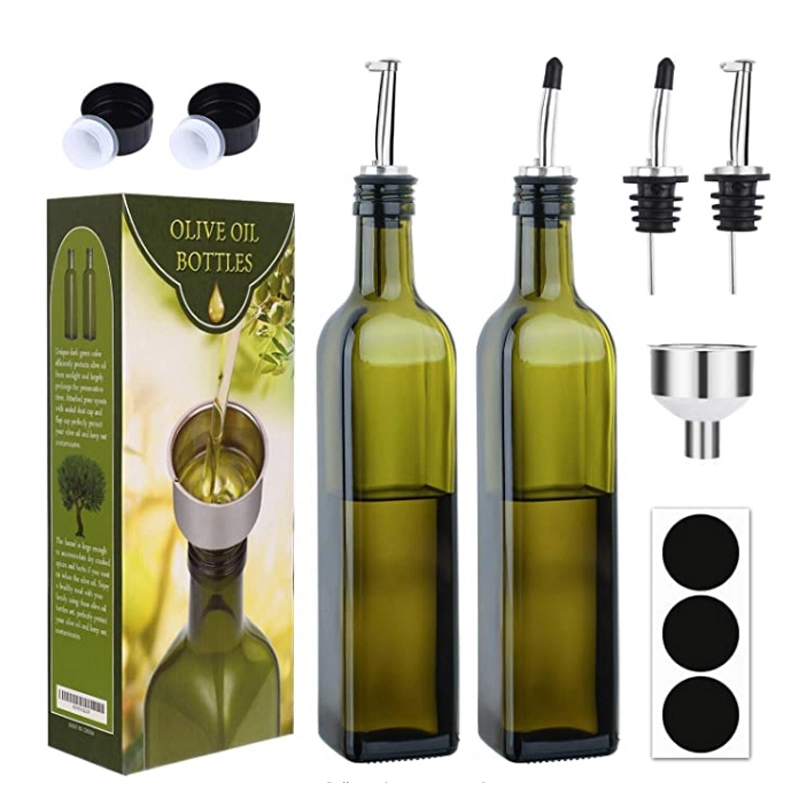
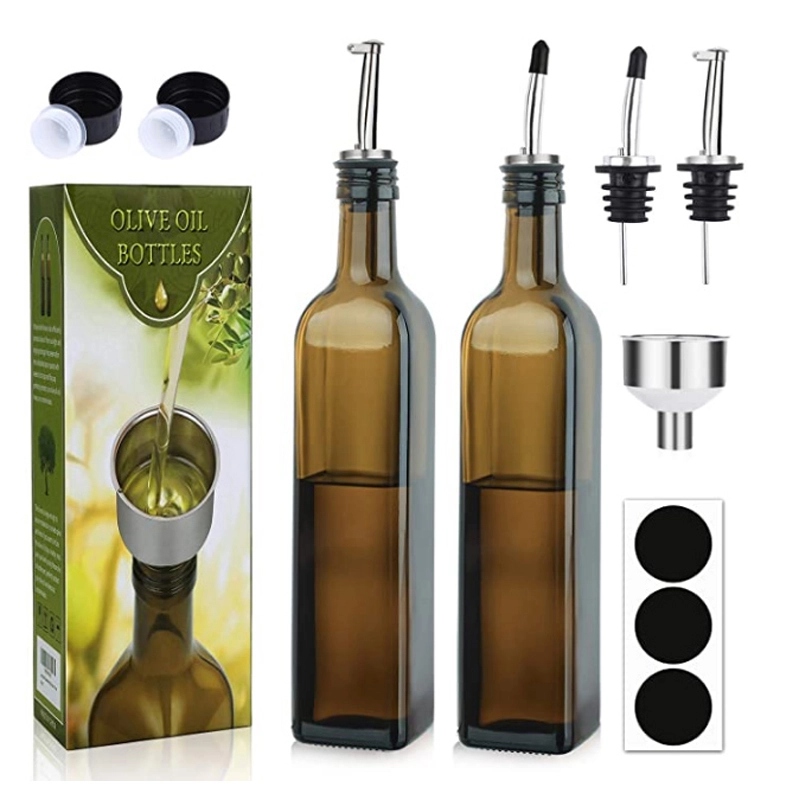
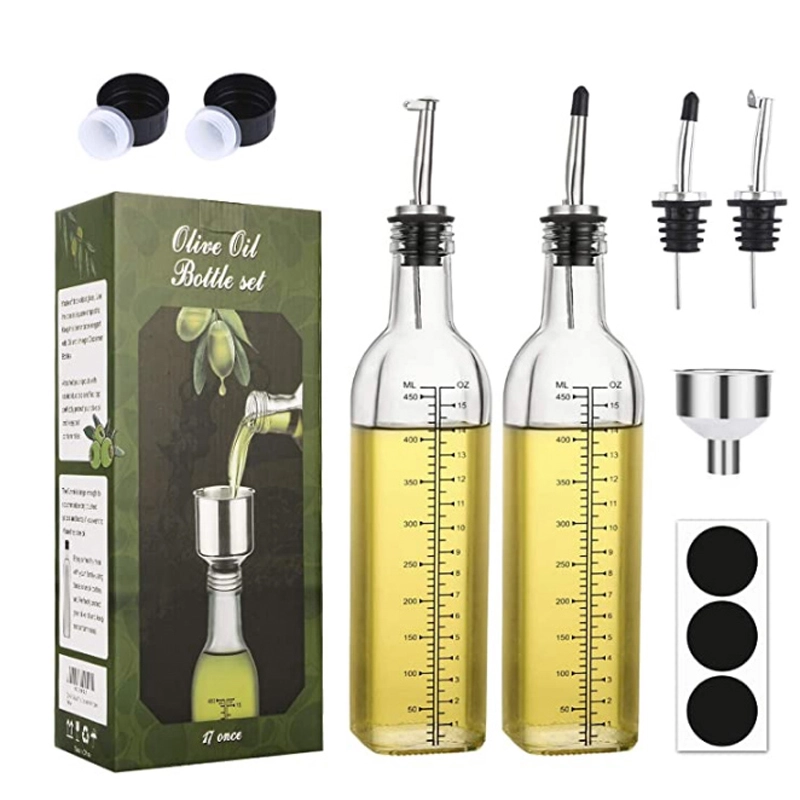
A Simple Guide for Consumers
- Always buy olive oil in dark glass bottles or metal tins.
- Avoid plastic and clear bottles unless they are boxed.
- Store olive oil in a cool, dark cupboard away from heat sources.
- Buy smaller quantities to ensure freshness.
- Check the harvest date—fresher is always better.
By following these simple steps, you can make the most of your olive oil’s flavor and health benefits.
Conclusion
So, does olive oil need to be in a dark bottle? Yes, without question. The combination of delicate composition and light sensitivity makes proper packaging essential. Dark bottles or tins protect against oxidation, preserve antioxidants, and guarantee the authentic taste of extra virgin olive oil.
Today’s consumers are more aware than ever of what makes olive oil authentic and high quality. Bottle color has become a visual signal of trust and quality. Premium producers proudly use dark packaging to demonstrate their commitment to preserving freshness.
At EasyLife, we believe packaging should protect and elevate. Our dark glass bottles safeguard the purity and flavor of your olive oil while adding sophistication and premium appeal to your brand. With a commitment to sustainability, we provide eco-friendly glass packaging solutions tailored to the olive oil industry. Each bottle is carefully crafted to preserve freshness, enhance presentation, and ensure your product delights consumers from the very first pour.

